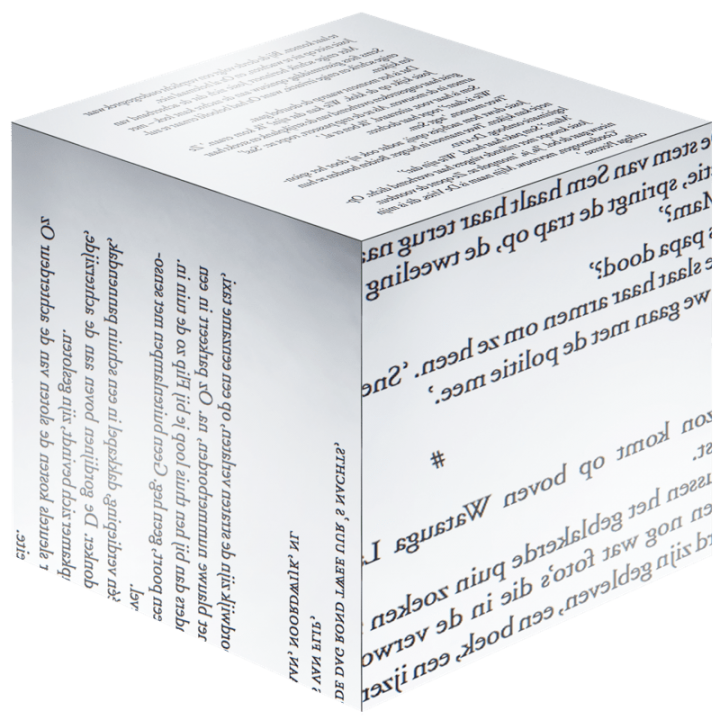
Update: The prize longlisted for the NBD Biblion Gouden Strop 2025
The Prize begins in 2022 with an offer I can't refuse from Anna Jansen of A.W. Bruna in my inbox: 'We are looking for an author, possibly as ghostwriter, possibly as co-author, for a thriller based on the experiences (fictionalized) of a specialist in the field of undercover operations and organized crime. We are looking for a versatile author with a smooth pen, to work with him to create a raw, exciting and realistic thriller.' I don't know Anna yet, but of course I do know A.W. Bruna: they publish Grisham, Baldacci, Deon Meyer, the Champions League of thriller writers. Original Dutch work I haven’t seen – with the exception of Suzanne Vermeer obviously, who inexorably reaches #1 in the bestseller lists every season – but that could just be me. Publisher Steven Maat and I meet each other in the corridors of the bookworld, but up until now we didn't collaborate professionally.
Beer and bitterballs The undercover agent turns out to be Marcel van de Ven, whom I know from his cameragenic one-liners in the Hunted television show. We meet over beer and bitterballs; he is a storyteller, an anecdote machine, ask a question and an example is provided. We quickly agree that it should be a book that does justice to police work. It bothers Marcel that popular series such as Mocromafia and Penoza, no matter how well made, give a distorted picture, causing the audience to sympathize with 'cuddle criminals' such as Ferry in Undercover. The bad guys are the hero.
Laziness Marcel's frustration strikes a chord – 'my' genre bursts with one-dimensional cardboard Hollywood clichés, with on the one hand increasingly gruesome serial killers and on the other lonesome cowboys (m/f) who struggle (a) with asshole managers and colleagues or (b) a drinking problem or (c) a personality disorder or (d) all of the above. All of us in the thriller business have to deal with its conventions. Nevertheless my sympathy lies with ordinary heroes, people like you and me, especially when they find themselves struggling with their own value systems and best intentions. Marcel and I quickly agree that we want credibility above all else: real people, with real stories (albeit fictionalized).
Never a police book I like to try something new with each book, something I haven't done before – like a police book that more or less starts with a corpse and more or less ends with the perpetrator behind bars. Also new to me is that The Prize (which in its first manuscript version is called The Fall of the Wolf) will be a team book: about a team, by a team.
To work Two specialists at work in their mutual fields of expertise; you don't need a crystal ball to predict that things can end only in one of two ways. We spend time in advance defining responsibilities, who has veto where, and agree on basic rules of engagement which can be useful to us later on. We start with weekly brainstorming sessions of a few hours, which culminate in the exchange of the first tentative attempts on paper, storylines (I've got five of them initially), character studies, drafts of possible action sequences. The writing process is similar to preparing for an operation: don't immediately give chase with guns drawn and sirens screaming, but first think, listen, discuss, try something, suggest a better idea, report, agree on the best approach, evaluate and tell each other the truth.
Fiction or? It's all fictious, The prize does not describe existing operations or colleagues. And yet we read in the newspaper every day how near our imagination comes to reality. Not only in the words of the usual suspects (crime reporters such as John van den Heuvel, Jan Meeus and Paul Vugts), but also in The Guardian and Der Spiegel, where the Netherlands are routinely compared to a narco-state.
Satisfied? Yes, because working with someone on something of significance is above all an opportunity to study your own preferences and blind spots. Often during the process I thought about Bowie's creation starts at the edge of the uncomfortable. Last but not least, Steven Maat and I are now working together on a more than professional basis.
Satisfied with the book? Is it thrilling? Is it still okay, to have two white men of a certain age write a book about two women?
If police officers read it and recognize themselves (and say: 'That's not how it went, but that's how it is') we have achieved our goal.
Update: The prize is longlisted for the NBD Biblion Gouden Strop 2025.